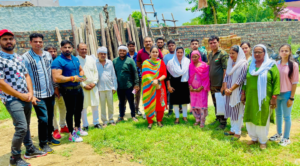Natural calamities and emergencies disrupt lives, often leaving communities vulnerable. Quick response and effective disaster relief efforts play a crucial role in providing immediate aid and long-term rehabilitation.
Distributing food, medical supplies, and shelter during disasters helps affected families recover faster. Well-planned emergency response systems, including trained volunteers and efficient logistics, can make a significant difference in minimizing loss and suffering.


Beyond immediate relief, rebuilding infrastructure, restoring livelihoods, and offering psychological support are essential aspects of post-disaster recovery. Rehabilitation programs ensure that affected communities regain stability and resilience.
Preparedness is key. Educating people about disaster management, implementing early warning systems, and strengthening community support can reduce the impact of future crises. Collective action and strategic planning can save lives and secure a safer future for all.


Leave A Comment